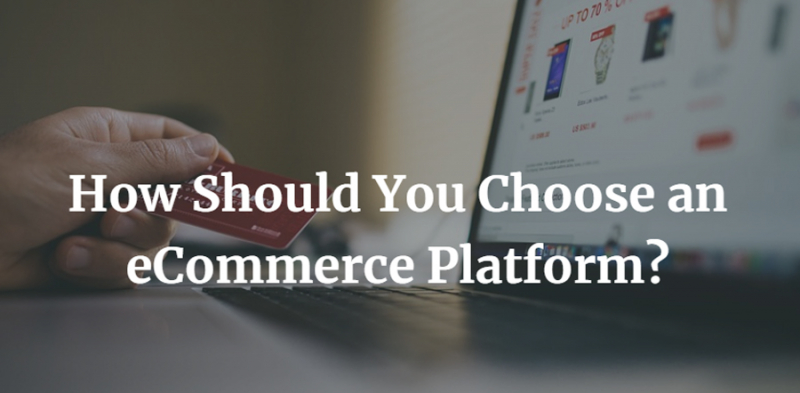We live in a golden age of entrepreneurship, in part because of the accessibility of entrepreneurship that the internet has offered. There are now dozens of thriving eCommerce platforms available, each of which could be used to build a successful online store. In theory, all those options are a good thing—it means you can find the perfect platform for you. But in reality, the number of available platforms leads many entrepreneurs to analysis paralysis.

With so many platforms to choose from, how are you supposed to make the right choice?
Core Features
You have to start by looking at the core features of each platform in your pool of candidates. For example, most platforms will offer the basic functionality of creating a website and designing it based on a template (or custom design). But some have other built-in features, such as domain hosting and email support, or access to a plethora of third-party tools (such as Wix’s app market). Some may even offer functional bonuses, like support for search engine optimization (SEO).
Chances are, this step will allow you to eliminate at least a handful of potential platforms that don’t meet your minimum specifications.
Reviews
Next, shop around for user reviews of each platform, and read through them. You might find that one platform has a consistently higher star rating than the others, but if you don’t know why it has that higher star rating, you won’t be any closer to making a decision for your business. The best reviews will give you the rundown on a specific platform, like Shopify, and explain exactly what the writer likes about it. That’s the information and the perspective you need to make a more informed decision.
Targeting and Specificity
You might also consider who each platform is specifically designed for. Many platforms attempt to serve a general audience, but there are some that target a specific industry or business size. If you feel you’re going to face specific challenges because of your business type, it might be in your best interest to seek a platform that can cater to you. Otherwise, a general platform will probably do fine.
Pricing
Almost all the big-name players in the eCommerce industry come with some kind of fee. Many of them have a monthly subscription rate, which you’ll have to pay to get access to the platform, while others have transactional costs, hosting costs, or other fees you’ll need to pay. These rates vary dramatically based on the features each platform offers, and many platforms have multiple tiers of subscriptions, which offer different perks based on how much you pay.
Obviously, you’re going to be limited by your business’s overall software and subscription budget. However, there’s some truth in the adage “you get what you pay for.” It’s oftentimes worth paying a little extra to make sure your platform has everything your business is going to need.
Designs and Templates
You should also consider the designs and templates that each platform offers, since each will add its own unique spin on the website building experience. If you aren’t a seasoned website designer, you might not know what to look for, but you should be able to gauge how well each template fits your brand and how different each template feels; one of the drawbacks to using templates is that you’ll look similar to other sites, so you need some way to stand out.
Additionally, you’ll want to investigate how much customization is available on each platform. Even if you want to build something out-of-the-box now, you might want the flexibility to add and remove things later.
Ease of Use
Finally, spend some time tinkering around on each platform to see how easy it is to use. Ideally, you’ll find a platform that makes intuitive sense to you, so you can quickly and easily accomplish your goals when you log on. It also pays to pick a platform that’s easy to teach someone to use—in case you hire employees to manage your site for you.
Ultimately, the decision is up to your personal preference and your business’s unique needs. Fortunately, most platforms offer a free trial, or at least a product tour before you sign up, so you can get a feel for how each one works. Spend some time investigating your options, and only move forward when you’re sure you’ve found an ideal partner for the future.






